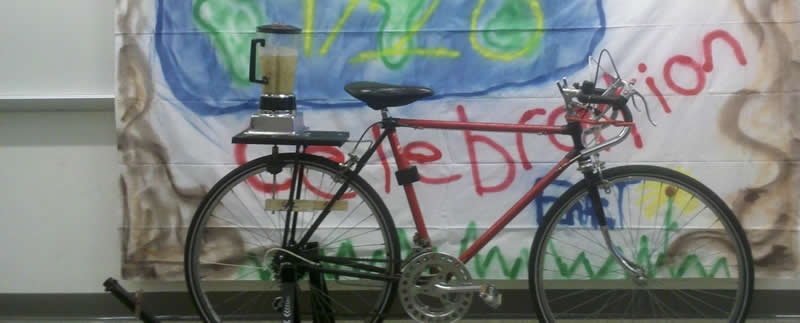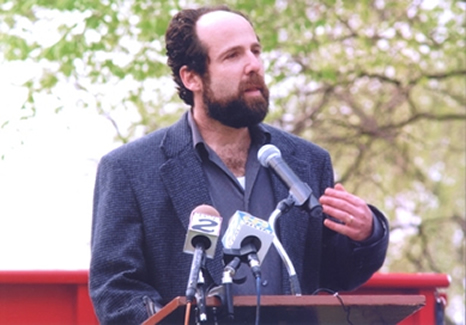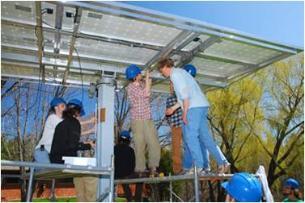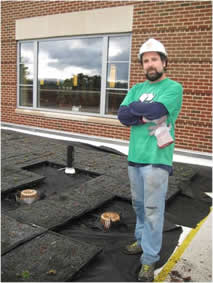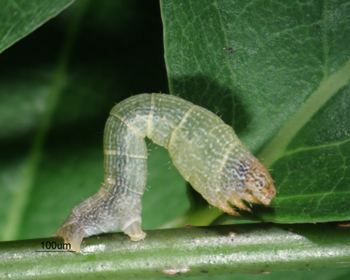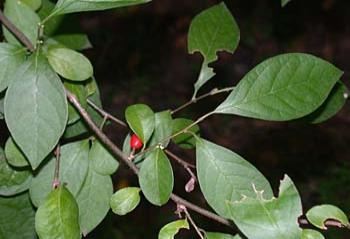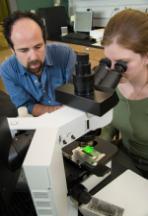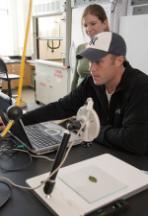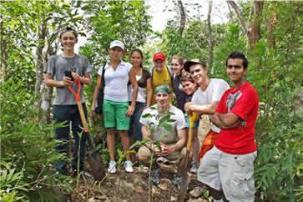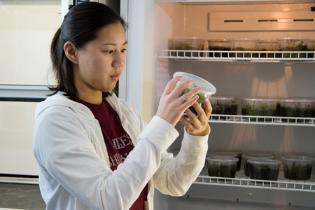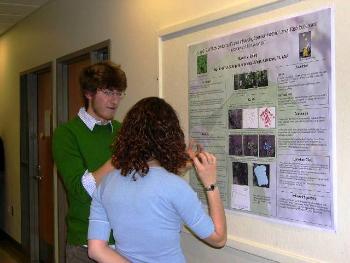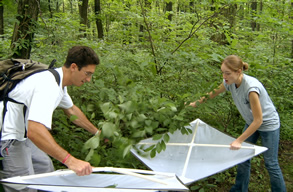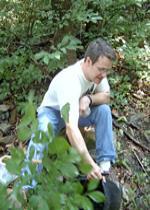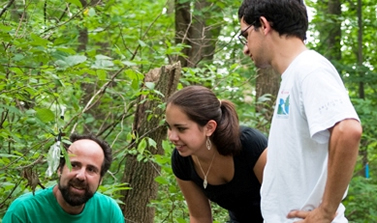|
Biology Home | Sustainability Studies | Plant-Insect Research
|
|
Richard Niesenbaum, Ph.D. Program Faculty in Sustainability Studies, Latin American & Caribbean Studies, and Public Health 237 New Science Building Twitter: @SusSolutions
|
|
||
|
|
|||
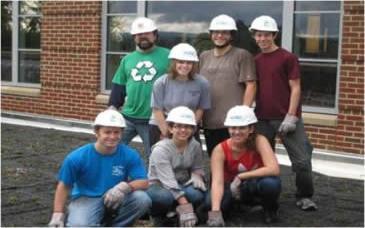
|
Education: Ph.D. Biology/Ecology - University of Pennsylvania M.S. Biological Oceanography - University of Connecticut B.A. Biology and Environmental Studies - University of Pennsylvania
Selected Honors and Awards: The Class of 1932 Research Professor for 2014-2015 The Spira Honoree for Distinguished Teaching, Muhlenberg College, 2012-2013 The Donald B. Hoffman Research Fellowship, Muhlenberg College 2006 Lehigh Valley "Mover and Shaper", Lehigh Valley Magazine, 2005 The Class of 1932 Research Professor for 2003-2004 The Donald and Anne Shire Distinguished Teaching Professor - 1999-2000 Muhlenberg College Bridgebuilders Award for support of students with disabilities - 1998 & 2000 The Huebner Global Education and Awareness Award - Muhlenberg College -1997 The Robert C. Williams Faculty Prize for Distinguished Scholarship - 1996
|
||
|
|
|||
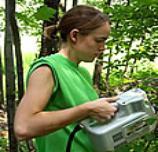 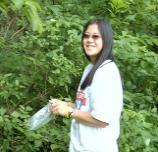 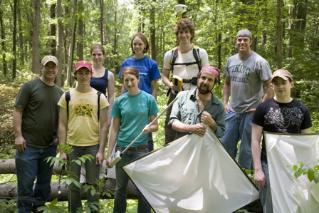 |
Recent Grants: The National Science Foundation, Cross-Disciplinary Research at Undergraduate Institutions (NSF-CRUI), Linking ecology, leaf chemistry, and genetics to assess abiotic and biotic determinants of herbivory. With Marten Edwards, Chris Ingersoll, & George Benjamin. For more information about this project visit our NSF-CRUI Home Page. FIPSE - Discovery and Exploration in the Physical and Life Sciences - A grant to support students at risk. With Don Shive. Merck/AAAS – Undergraduate Research Experiences at the Interface of Biology and Chemistry. With multiple collaborators. The National Science Foundation, Division of Environmental Biology, Research Award, How Experimenter Visitation and Measurement Affect Herbivory and Plant Growth. With James Cahill and Chris Ingersoll. |
||
|
|
|||
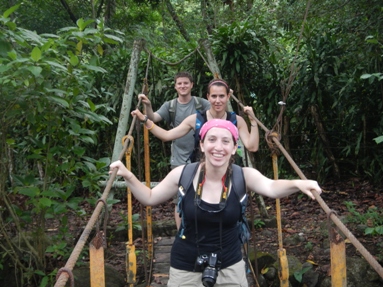  |
Recent Courses (click on course title for more detail): Sustainable Solutions Field Botany and Plant Ecology Principles of Biology I Plants & People
Resources (click for more detail): Herbarium |
||
|
|
|||
|
|
Interests: I Chair Muhlenberg's Sustainability and Campus Tree Committees, and Co-Direct the Office of Campus Sustainability. I am a Fair Trade Coffee advocate and addict, and I frequently play late-night ice hockey. Students who have interest in doing research in any of these areas, and are willing to make the commitment that I expect from all of my research students are encouraged to contact me. The Niesenbaum Lab: |
||
|
|
|||
|
|
Selected Publications: Niesenbaum, R.A. 2013. Can latitudinal studies predict potential effects of global climate change on insect herbivore-host plant interactions? Trends in Entomology 8:1-8. Mooney, E.H. and R.A. Niesenbaum. 2012. Population-specific responses to light influence herbivory in the understory shrub Lindera benzoin. Ecology 93(12): 2683-2692. Ingersoll, C.M., R.A. Niesenbaum, C.E. Weigle* and JH. Lehman*. 2010. Total Phenolics and Individual Phenolic Acids Vary with Light Environment in Lindera Benzoin. Botany 88(11): 1007–1010. Mooney, E.H., M.E. Edwards, and R.A. Niesenbaum. 2010. Genetic differentiation between sun and shade habitats in populations of Lindera benzoin L. Population Ecology, 52:417-425. Mooney, E.H., E.J. Tiedeken*, N.Z. Muth, and R.A. Niesenbaum. 2009. Differential induced response to generalist and specialist herbivores by Lindera benzoin L. (Lauraceae) in sun and shade. Oikos, 118:1181-1189. Muth, N.Z., E.C. Kluger*, J.H. Levy*, M.J. Edwards and R.A. Niesenbaum. 2008. Increased per capita herbivory in the shade: necessity, feedback, or luxury consumption? Ecoscience,15:182-188 (PDF). *Skoczylas, D., R.A. Niesenbaum, and N.Z. Muth. 2007. Top-down control of herbivory by insectivorous avifauna. Acta Oecologica, 32:337-342. Edwards, M.E., and R.A. Niesenbaum. 2007. Eleven polymorphic microsattelite loci in Lindera benzoin, Lauraceae. Molecular Ecology Notes, 7:1302-1304. Niesenbaum, R.A. and E.C. Kluger*. 2006. When studying the effects of light on herbivory, should one consider temperature? The case of Epimecis hortaria F. (Lepidoptera: Geometridae) feeding on Lindera benzoin L. (Lauraceae). Environmental Entomology 35:600-606. (PDF) Niesenbaum, R.A., J.F. Cahill, and C. Ingersoll. 2006. Light, wind, and touch influence leaf chemistry, growth, and rates of herbivory in Apocynum cannabinum (Apocynaceae). International Journal of Plant Sciences 167:969-978. Niesenbaum, R.A., M.E. Salazar, and A.M. Diop. 2004. Community forestry in the Mayan Biosphere Reserve in Guatemala. The Journal of Sustainable Forestry 19:11-28. Lewis, T.L. and R.A. Niesenbaum. 2005. Extending the stay: Using community-based research and service-learning to enhance short-term study abroad. Journal of Studies in International Education 9:251-264. Niesenbaum, R.A. and T. Lewis. 2003. Ghettoization in conservation biology: How interdisciplinary is our teaching? Conservation Biology 17:6-10. Bharucha, D.X., B. Morling, and R.A. Niesenbaum. 2003. Use and definition of herbal medicines differ by ethnicity. The Annals of Pharmacotherapy 37:1409-1413. Niesenbaum, R.A. and T. Lewis. 2003. Reviewing conservation biology textbooks: A response to Primack. Conservation Biology 17:1. Gorka, B. and R. Niesenbaum. 2001. Beyond the language requirement: Interdisciplinary short-term study abroad programs in Spanish. Hispania 84:100-109. Niesenbaum, R. and B. Gorka. 2001. Community based eco-education: Sound ecology and effective education. Journal of Environmental Education 33:12-16. Niesenbaum, R.A. 2000. Towards a sustainable future: Environmental activism in Russia and the United States. Book Review in: Human Ecology Review, 7:81-82. Niesenbaum, R.A. 1999. The effects of pollen load size and donor diversity on pollen performance, selective abortion, and progeny vigor in Mirabilis jalapa (Nyctaginaceae). American Journal of Botany 86:261-268. Niesenbaum, R.A., M.D. Patselis, and S.D. Wiener. 1998. Does flower color change in Aster vimineus cue pollinators? American Midland Naturalist 141:59-68. Niesenbaum, R.A. and S.S. Scheuller. 1997. Effects of pollen competitive environment on pollen performance in Mirabilis jalapa (Nyctaginaceae). Sexual Plant Reproduction 10:101-106. Niesenbaum, R.A. 1996. Linking herbivory and pollination: Defoliation and selective fruit abortion in Lindera benzoin. Ecology 77:2324-2331 . Niesenbaum, R.A. and B.B. Casper. 1994. Pollen tube numbers and selective fruit maturation in Lindera benzoin. The American Naturalist 144:184-191. Niesenbaum, R.A. 1994. Spatial and temporal variation in pollen tube numbers in Lindera benzoin (Lauraceae). Canadian Journal of Botany 72: 268-271. Casper, B.B. and R.A. Niesenbaum. 1993. Pollen versus resource limitation of seed production: A reconsideration. Current Science 65:210-214. Niesenbaum, R.A. 1993. Light or pollen: Seasonal limitations on fruit set in Lindera benzoin. Journal of Ecology 81:315-323. Niesenbaum, R.A. 1992. Sex ratio, components of reproduction, and pollen deposition in Lindera benzoin (Lauraceae). American Journal of Botany 79:495-500. Niesenbaum, R. A. 1992. The effects of light environment on herbivory and growth in the dioecious shrub Lindera benzoin (Lauraceae). American Midland Naturalist 128:270-275. Petraitis, P.S., R.E. Latham, and R.A. Niesenbaum. 1989. The maintenance of species diversity by disturbance. Quarterly Review of Biology 64:393-418. |
